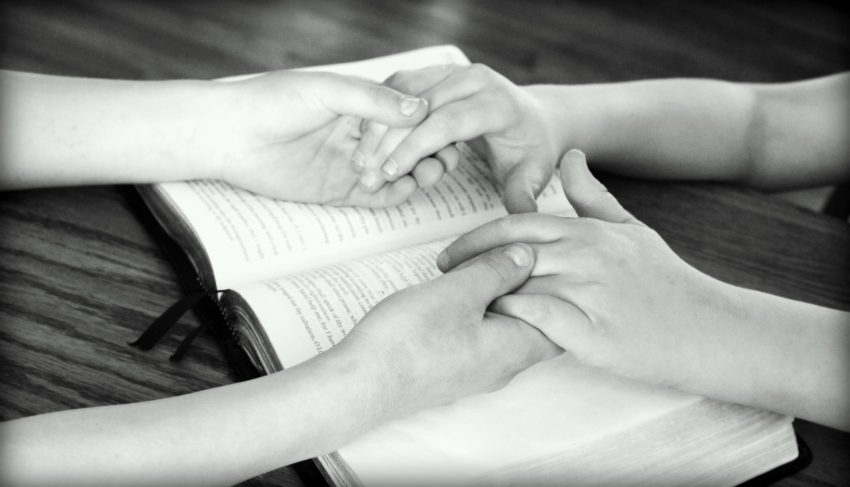Recently I have been struck with the response people give me when I ask them, “What gift or blessing do you deeply desire God to give you?” Invariably, many of them respond with yearning for a kind of faith or trust in God that gives them some deep inner peace which is also manifested outwardly in their demeanor and behavior. The prevalence of this desire speaks to the increased levels of anxiety that many are experiencing as they struggle to keep up with the demands of everyday family life, job pressures, financial challenges, and health concerns in today’s divisive and rapidly changing technological, cultural, political, and religious contexts.
What to say (and what not to say)
Anxious persons often experience restlessness, irritability, a sense of being overwhelmed most of the time, constant worrying about something, inability to focus, and sometimes increased heart rate, sweating, and difficulty breathing. Since anxiety involves physiological, cognitive, emotional, and behavioral aspects of a person’s functioning, it is very difficult for an anxious individual to calm down.
Many people in this state can and do call out to God for help when the anxiety waves toss them about at sea and threaten to overwhelm their little vessel (cf. Mark 4:35–41). But although they may believe Christ is with them, he seems asleep and appears as though he doesn’t notice or care. Hence it is not helpful to say at the outset to anxious persons such things as “calm down,” “stop worrying about it,” or “everything’s going to be okay.” Such statements may increase their anxiety. It points out their inadequacy to “control” the symptoms of their anxiety at that moment.
The same outcome may also ensue if the spiritual supporter starts by citing certain texts from Scripture, such as Jesus’ statement in Matthew 6:25 and Luke 12:22, “Do not worry about your life,” and his statement in John 14:1, 27, “Do not let your hearts be troubled.” Such quotations, even if meant to encourage, may trigger a sense of doubt in God’s promises or a sense of failure to trust God.
When anxiety escalates, it is helpful first to acknowledge compassionately that anxiety is a source of great suffering so the anxious person has a sense that you understand and are with him or her. Then invite the person to join you in a particular kind of prayer, called breath prayer. This kind of prayer is very simple and effective in calming the nervous system and creating a sense of spaciousness in the brain and heart so that, then and there, the person may be more ready to receive the efficacious word of God.
I would lead such a prayer in this way:
We begin our prayer in the name of God, who gives us life at this very moment;
in the name of Jesus Christ, who embraces our wounds and restores us to wholeness;
in the name of the Holy Spirit, who breathes Christ’s gift of peace in us.
Speak in a calm and steady voice matching the breath of the person:
I invite you now to
Take in a slow, deep breath;
Notice the breath entering your nose,
Feel the coolness touch the back of the throat,
Feel the rise in your belly, lungs, chest.
Gently, slowly exhale;
Notice your shoulders falling away from your ears,
Descending through your chest, lungs, belly.
Take in another slow deep breath;
Feel the rise in your belly, lungs, and chest as they fill with this life force we call breath,
The breath of the Living God, God’s Ruah.
Slowly exhale, allowing the breath of God’s life to fill every cell of your being.
Here one could slowly read Mark 4:35–39:
“On that day, when evening had come, he said to them, ‘Let us go across to the other side.’ And leaving the crowd behind, they took him with them in the boat, just as he was. Other boats were with him. A great windstorm arose, and the waves beat into the boat, so that the boat was already being swamped. But he was in the stern, asleep on the cushion; and they woke him up and said to him, ‘Teacher, do you not care that we are perishing?’ He woke up and rebuked the wind, and said to the sea, ‘Peace! Be still!’ Then the wind ceased, and there was . . . calm,”
end with a paraphrase of Jesus’ words, “Quiet now, be calm,” then continue with the following:
Take in another slow, deep breath,
Opening to receive the breath of Christ’s Spirit,
Filling your chest, lungs, and heart with Christ’s peace:
“Peace I leave with you; my peace I give to you” (John 14:27).
Slowly exhale, allowing Christ’s peace
To fill every cell of your being.
And for this moment and beyond
There is space in your brain,
And Christ’s gift of peace in your heart.
Glory be to God, whose power working in us
Can do infinitely more that we can ask or even imagine (Eph 3:20);
All glory and praise be to you, O God. Amen.
After allowing the person to share anything they wish after that guided-prayer experience, you might encourage the person to do short breath prayers throughout the day. Advise them to follow the rhythm of the inhale and exhale of breath—for example, on the inhale say or think, “My peace I give to you,” and on the exhale, “Peace I leave with you.” Such repetition reinforces the calming effect of Breath Prayer and the deeper rooting of Christ’s words in one’s mind and heart.
(A helpful suggestion: try leading this prayer with a friend before doing so with someone caught in the grip of anxiety.)
Helpful resources for further consultation include:
The Ignatian Adventure: Experiencing the Spiritual Exercises of St. Ignatius in Daily Life, by Kevin O’Brien SJ (Loyola, 2011)
Prayers for Every Need, by William H. Kadel (C. D. Deans, 1966)
 Dr. Martha A. Robbins is the Joan Marshall Associate Professor Emerita of Pastoral Care.
Dr. Martha A. Robbins is the Joan Marshall Associate Professor Emerita of Pastoral Care.
A version of this essay originally appeared in Toward Bearing One Another’s Burdens: Praying with Others through the Challenges of Life (ed. Connie Tappy, Pittsburgh Theological Seminary, 2019).

